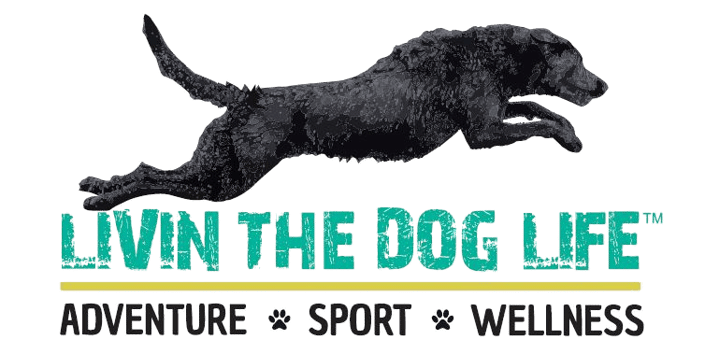Find A Veterinarian
Your Guide to Choosing the Right Veterinarian for Your Beloved PetA comprehensive guide on finding a trusted veterinarian.
Your pet’s health and well-being are of utmost importance, and having a knowledgeable and compassionate veterinarian by your side is essential. Whether you’re a first-time pet owner or seeking to switch veterinary clinics, we are here to provide you with the guidance and information you need to make an informed decision.
Finding the perfect veterinarian involves careful consideration and research. From their reputation and expertise to the services they offer and their approach to pet care, every aspect matters in ensuring the best possible care for your furry friend. Join us as we explore frequently asked questions, offer valuable tips, and shed light on what to expect during veterinary visits. Together, let’s embark on a journey to find a veterinarian who will become your trusted partner in providing the highest level of care for your cherished companion.
Tips for Finding a Good Veterinarian
Seeking recommendations from trusted sources
Researching online reviews and testimonials
Scheduling a visit to the clinic or meeting with the veterinarian
Asking relevant questions about their approach to care
Observing the clinic's facilities, cleanliness, and equipment
Trusting your intuition and assessing the overall comfort level
Discover Veterinary Care Near You
Are you seeking a holistic approach to veterinary care for your beloved pet? Look no further! The American Holistic Veterinary Medical Association (AHVMA) has created an incredible map that connects you with trusted holistic veterinarians in your area. Embracing a holistic approach means considering your pet’s overall well-being, focusing on their physical, emotional, and spiritual health.
Featured Veternarians
Are you seeking a holistic approach to veterinary care for your beloved pet? Look no further! The American Holistic Veterinary Medical Association (AHVMA) has created an incredible map that connects you with trusted holistic veterinarians in your area. Embracing a holistic approach means considering your pet’s overall well-being, focusing on their physical, emotional, and spiritual health.
What to Expect During a Veterinary Visit:
Physical examinations and preventive care
Vaccinations and parasite prevention
Diagnosis and treatment of illnesses and injuries
Dental care and hygiene
Nutritional counseling and weight management
Client education and guidance on pet wellness
Frequently Asked Questions
How do I find a good veterinarian?
Finding a good veterinarian can be done through several methods. Seek recommendations from trusted sources, such as friends, family, or local pet communities. Online review platforms and veterinary directories can provide valuable insights and feedback from other pet owners. It’s also beneficial to schedule a visit or consultation with prospective veterinarians to get a sense of their expertise, communication style, and overall compatibility with you and your pet.
What factors should I consider when choosing a veterinarian?
When choosing a veterinarian, consider factors such as their reputation, location, range of services offered, compatibility with your pet’s species and needs, communication style, and availability of emergency care. Additionally, observe the clinic’s facilities, cleanliness, and equipment, as well as the demeanor of the staff. It’s essential to choose a veterinarian who aligns with your values, demonstrates compassion, and provides a comfortable environment for both you and your pet.
What breeds are available for adoption?
When it comes to dog adoption, a wide variety of breeds and mixed breeds are available. Animal shelters and rescue organizations often have an assortment of breeds, including popular breeds like Labrador Retrievers, German Shepherds, Bulldogs, and many more. Additionally, there are breed-specific rescue groups that focus on particular breeds. By exploring local shelters, rescue organizations, and online adoption platforms, you can find a range of breeds, sizes, and ages to choose from, ensuring you find the perfect match for your lifestyle.
How can I find a dog that suits my lifestyle?
Finding a dog that suits your lifestyle begins with self-reflection and understanding your preferences, activity levels, and living situation. Consider factors such as the size, exercise needs, grooming requirements, and temperament of different breeds. Research specific breeds and their characteristics to determine compatibility with your lifestyle. When visiting shelters or working with rescue organizations, be open and communicate your preferences, lifestyle, and expectations. The staff can guide you towards dogs that match your criteria and introduce you to potential matches. Remember, it’s important to find a dog whose needs align with yours to ensure a harmonious and fulfilling relationship.
What services should a good veterinarian offer?
A good veterinarian should offer a wide range of services to meet your pet’s needs. This typically includes preventive care such as vaccinations, wellness exams, and parasite prevention. They should also provide diagnostic services, treatment options for illnesses and injuries, dental care, nutritional counseling, and support for senior pet care. Additionally, a good veterinarian will emphasize client education, offering guidance on pet wellness, behavior, and any specific needs your pet may have.
How can I assess the qualifications and expertise of a veterinarian?
Assessing the qualifications and expertise of a veterinarian can be done by researching their education, credentials, and any specialized training or certifications they possess. Check if they are licensed and a member of reputable veterinary associations. Review their professional experience and areas of interest or expertise. A veterinarian who stays up-to-date with current research and attends continuing education programs demonstrates their commitment to providing the best care for their patients.
How can I determine if a veterinarian has a good rapport with animals?
Observing how a veterinarian interacts with animals is a crucial aspect of determining their rapport. Look for signs of gentleness, patience, and a calm demeanor while handling and examining animals. A good veterinarian will take the time to make your pet feel comfortable and secure during visits. Additionally, pay attention to how they communicate and listen to your pet’s needs and behaviors, as understanding and empathy are key components of building trust between a veterinarian and their patients.
What are some signs of a reputable veterinary clinic?
A reputable veterinary clinic will display certain characteristics. Look for a clean and well-maintained facility with proper sanitation practices. Friendly and knowledgeable staff members who prioritize client education and communication are essential. Reputable clinics often have up-to-date medical equipment and facilities to provide comprehensive care. They may also have affiliations with local veterinary associations and accreditation from recognized veterinary organizations.
How often should I take my pet to the veterinarian?
The frequency of veterinary visits depends on your pet’s age, health status, and any specific conditions they may have. Generally, it is recommended to schedule annual wellness exams for healthy adult pets. Puppies, kittens, and senior pets may require more frequent visits. Regular veterinary visits allow for preventive care, early detection of health issues, and ongoing monitoring of your pet’s overall well-being.
What should I expect during a veterinary visit?
During a veterinary visit, expect a thorough examination of your pet, including checking vital signs, listening to the heart and lungs, examining the eyes, ears, and mouth, and palpating the abdomen. The veterinarian may ask questions about your pet’s behavior, diet, and any concerns you may have. They will provide recommendations for preventive care, discuss any necessary diagnostics or treatments, and address any questions orconcerns you may have. Depending on the purpose of the visit, additional procedures such as vaccinations, blood work, or imaging may be performed. A good veterinarian will take the time to explain their findings, discuss treatment options, and ensure you have a clear understanding of your pet’s health status.
How can I prepare my pet for a visit to the veterinarian?
To help prepare your pet for a visit to the veterinarian, ensure they are comfortable and relaxed. Familiarize them with their carrier or leash and make the experience positive by associating it with treats or rewards. Bring any relevant medical records or information about your pet’s history, including medications or supplements they are taking. It’s also helpful to write down any specific concerns or questions you have before the visit, so you don’t forget to discuss them with the veterinarian. Finally, if your pet tends to get anxious or stressed during vet visits, let the clinic staff know in advance so they can provide additional support and create a calm environment.
What if I have an emergency or need veterinary care outside regular hours?
In case of an emergency or the need for veterinary care outside regular hours, it’s important to be prepared. Research emergency veterinary clinics in your area and program their contact information into your phone. Some veterinary practices offer after-hours emergency services or have partnerships with nearby emergency clinics. Familiarize yourself with their protocols and procedures. Keep a pet first-aid kit handy and know basic first-aid techniques. If you’re unsure whether your pet’s situation constitutes an emergency, call the clinic or an animal poison control hotline for guidance. Acting quickly and having a plan in place can make a significant difference in emergency situations.


